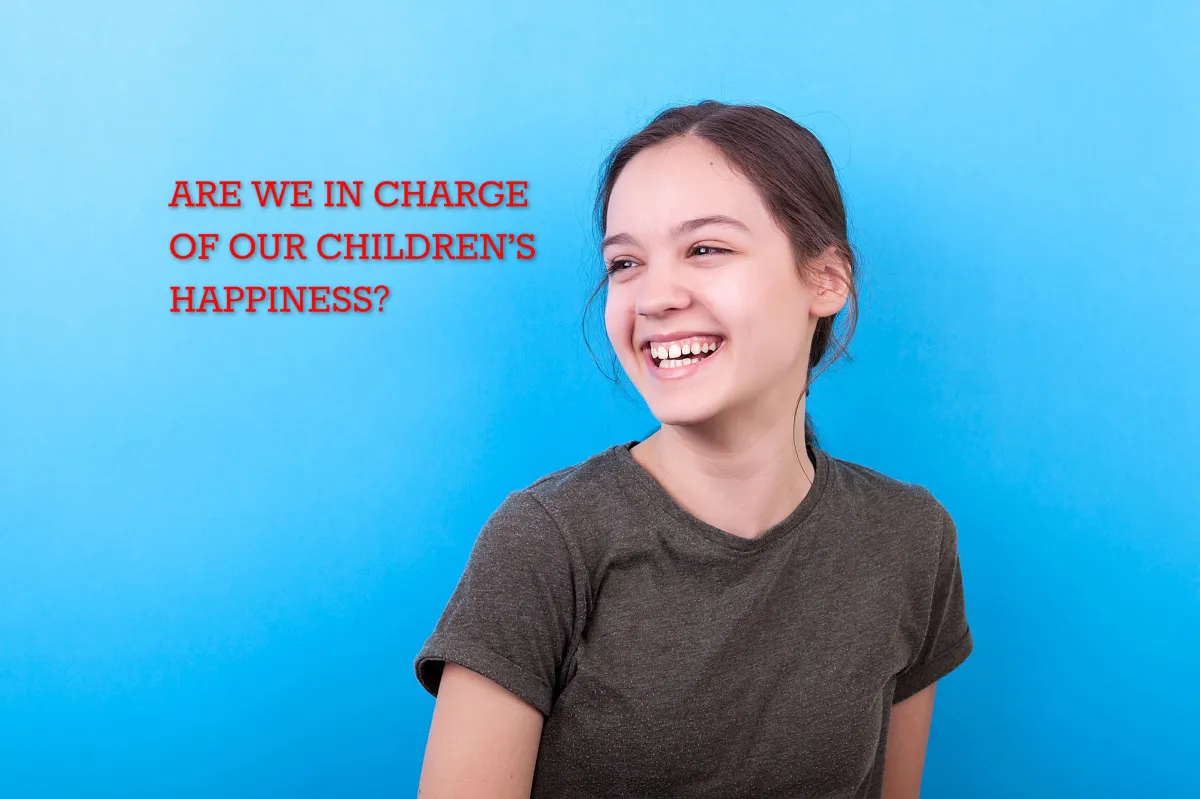The Social Communication Blog
By Linda Boverman

Are We In Charge Of Our Children's Happiness??
“Happiness and self-confidence can be the by-product of other things, but cannot be goals in themselves…Focus on producing productive and moral kids—and simply hope that happiness comes to them by virtue of the good they do and the love they feel from us.”
Jennifer Senior
I believe Senior is on the right track. If we believe we are in charge of our children’s happiness, we will act in ways that can very well hinder our children’s abilities to adapt, grow, and become self-sufficient, thoughtful, and happy human beings.
Still, we can’t really stop and don’t necessarily want to stop trying to make our children and others happy. Not in all situations. Although we know we are ultimately only in charge of our own happiness, we also know that thinking about others, caring about others and monitoring our behavior for the benefit—and happiness—of others and ourselves are cherished aspects of being human. We know doing this is necessary or our world would be an utter mess. We want our children to learn this. We know if they don’t their lives will be an utter mess.
Where we as parents get in trouble are safe situations when we inhibit ourselves from doing the “right” thing for fear of making our children unhappy and retaliate with mean words, rejection, resentment and the like.
We allow them to go overboard on candy, games, play dates, their favorite activities, and even my beloved parental playtime. We end up cajoling them and bribing them to do things they simply need to do, like getting ready for school or brushing their teeth. We may ask them what they want to eat, whether they could help us unload the car, or if they want to go to bed when it’s not a choice. We act in a myriad of unreasonable and unhelpful ways to avoid tears, tantrums, and the abysmal “I hate you” or even worse.
We also often take what our children say personally, forgetting that they are like us and just want what they want. In response to all this, we often try to be their friend instead of their parent. We let them hound us into submission. We feel guilty when we don’t submit. We submit because we’d rather have hurt feelings than hurt theirs. We tolerate behavior that looks extremely rude to virtually every onlooker, unwittingly relinquishing our role as parent. Doing this is risky business.
It makes it hard for our children to learn to be comfortable not always doing or getting what they want. They grow up with limited experience of adapting and compromising, not realizing doing so is part of life and can even be gratifying. They may get the impression they have equal status with us and consequently have equal say. In their “child” mind they may even think of themselves as adults and utter such words as “You are not in charge of me!”

BUT THEY ARE WRONG—WE ARE IN CHARGE OF THEM
Thinking otherwise is a very scary place for a child. They and their developing brains are not equipped to handle such responsibility. Children need reasonable rules, presented calmly and implemented calmly. They thrive resting in the truth that they are children and the adults are in charge—even when they argue, scream, yell, and tantrum otherwise.
When you are in charge your child will feel safe, cherished and loved. This means saying the hard NOs, setting limits, and following through consistently. They will push back. It’s in their DNA. They’re supposed to. And it is in our DNA to stay in charge. This reduces their stress and enhances their contentment and happiness. It’s also very different from controlling them.
A moment’s digression: We are in an era of negotiation with our children. Some educators are avid supporters of this. I would rather use negotiation judiciously. As Susan Stiffelman says, it can turn parent and child into two battling lawyers, and that usually doesn’t end well. Do you want to negotiate every time you tell your child to go to bed or would you rather give them a five minute warning then a one minute warning with them knowing full well that you will follow through and walk them to their room if necessary because you always follow through? You’ve given them transition time and it’s a done deal.
Giving our children a special treat or extra time on the jungle gym, going to their favorite restaurant, or making an exception can create enjoyment just like a new outfit, a trip, or a fabulous meal can do the same for us—in the moment. We don’t need to or want to give up doing that. Still, we know this does not create enduring happiness.
Happiness experts have discovered that character qualities account for this. I have synthesized them into six main categories:
COMPASSION
EMPATHY
GRATITUDE
FORGIVENESS
SERVICE
ACCEPTANCE
It comes down to us. The more we model these qualities and discuss them, the happier we are and the happier our children are. And remember—we are not meant to be happy all the time.
If you are interested in more information on this topic, you may like to take a look at this article on boosting happiness click here.
“THE MANNER IN WHICH WE COMMUNICATE AFFECTS OUR JOY OF BEING ALIVE."
LINDA

Copyright 2023 . All rights reserved
lindaboverman@gmail.com
(213) 804-7750

